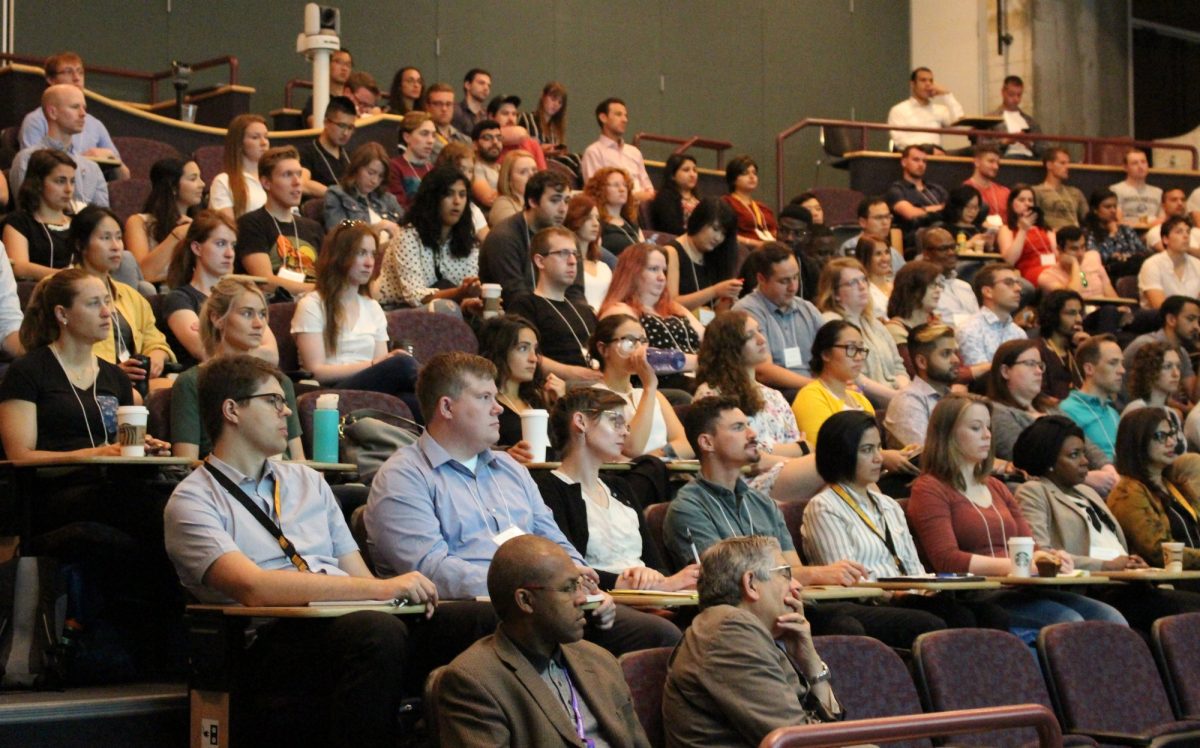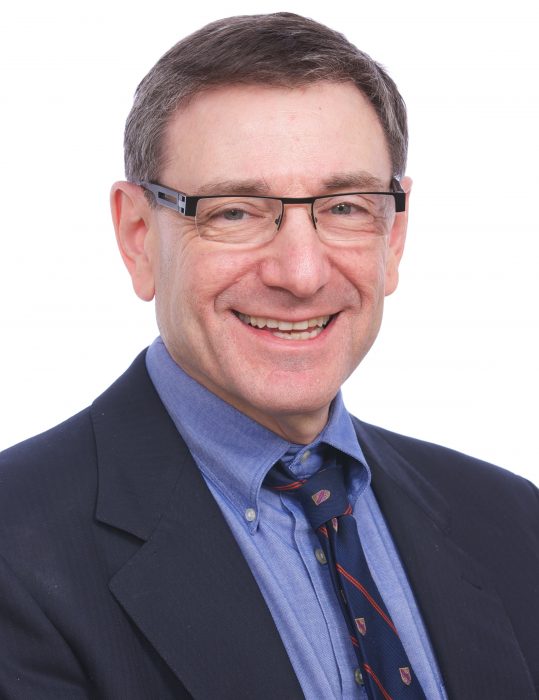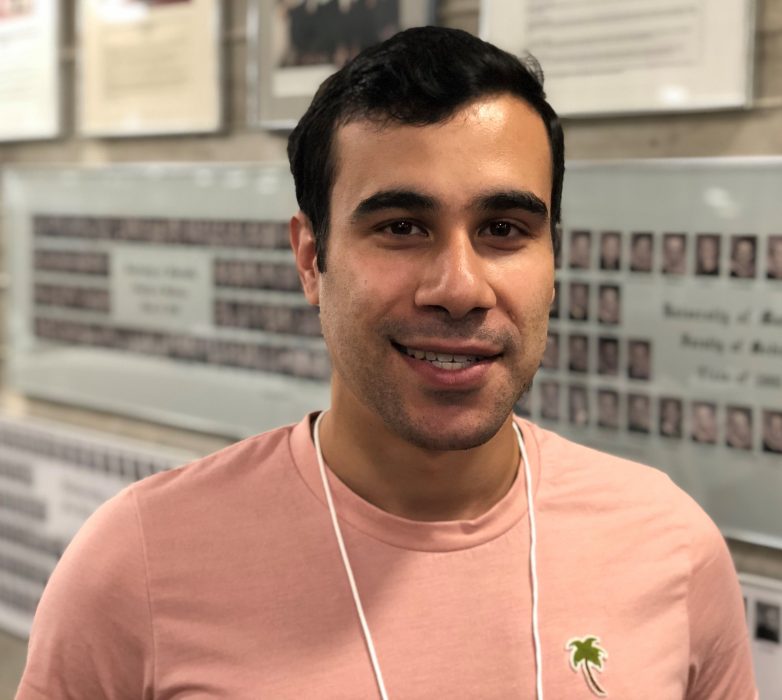
There were 160 new trainees who took part in the Postgraduate Medical Education (PGME) Orientation Day.
Orientation Day kicks off medical residents’ postgrad careers
The latest crop of residents at the University of Manitoba received an enthusiastic welcome during Postgraduate Medical Education (PGME) Orientation Day on June 26.
The orientation, held on the Bannatyne campus, was designed to acquaint the 160 new trainees with everything they needed to know before they reported for their first day on July 1. Most are starting residencies that will take two to six years to complete.
The trainees include residents who have completed medical degrees at the U of M, medical schools across the country and around the world. The trainees are beginning their residencies in fields ranging from family medicine to surgery and obstetrics to psychiatry.
The group also includes residents going into subspecialty programs, as well as fellows who have completed their residencies and are conducting focused learning in one of 30 clinical fellowship programs.

Dr. Cliff Yaffe, associate dean, PGME, Max Rady College of Medicine.
Dr. Cliff Yaffe, associate dean, PGME, Max Rady College of Medicine, said the orientation is held to familiarize the new trainees with the postgraduate education system in Manitoba, as opposed to what they’ve been accustomed to outside the province or during their undergraduate studies.
“Postgrad is a different world,” Yaffe said. “We want to make sure they know what the system is all about. Postgrad can be a very fulfilling time of education, and it can also be a very stressful time. It’s hard work, they’re on call, they work long hours, and we have to make sure these residents are aware of what’s available to assist them.”
The all-day orientation began with a welcome address by Yaffe and the group recitation of the Hippocratic Oath. More than 20 speakers covered topics ranging from professionalism to Indigenous health to benefit plans. The trainees learned about the services offered on the Bannatyne campus for wellness and stress management. They also heard presentations on occupational health, the PGME core curriculum and library services.
The new trainees heard from representatives from several organizations, including Doctors Manitoba, the College of Physicians and Surgeons of Manitoba and the Winnipeg Regional Health Authority.

Dr. Ali Taha is starting his residency in internal medicine.
During the lunch break, Dr. Ali Taha reflected on the morning.
“The orientation has been helpful in terms of getting some of the information you don’t often think about, like the little nuances of being on-call or pay,” said the graduate of the University of Toronto, who is starting his residency in internal medicine. “It’s also nice to get to see the faces of the people you’ll be working with.”
Dr. Pree Takhar, who is originally from Ontario and studied medicine at the Royal College of Surgeons in Ireland, belongs to the 10 per cent of new residents who are international medical graduates. For these trainees, the orientation period is a couple of weeks long.
“I think it’s good that they do an orientation like this, so you kind of know what you’re walking into,” said Takhar, who is doing her residency in family medicine. “They explain stuff, like insurance and the little details that you don’t really think about. So it’s really good.”
The day ended with a wine and cheese event hosted by the U of M Health Sciences Bookstore.
Yaffe said he wanted the new trainees to walk away from the orientation feeling truly welcomed.
“I want the trainees to know that there are supports to help them through potentially difficult times,” he said. “I would like them to have a sense of work/life balance, but at the same time, they need to know there’s a sense of responsibility, and this is a new chapter in their lives. I think they walk away feeling the responsibility, but at the same time feeling supported.”






